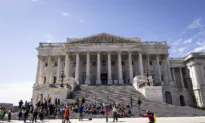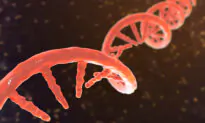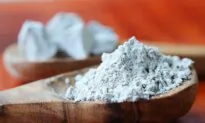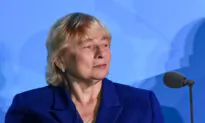WASHINGTON—The friendship between David Kilgour and David Matas goes back decades to their days in Winnipeg, where they were both born and raised.
Kilgour, who went on to become a member of Parliament and Canada’s secretary of state for Asia-Pacific, and Matas, an internationally recognized human rights lawyer, both went to the University of Manitoba, served on the university student council, and by chance, ended up studying or working in the same cities several times since then, including Paris, Ottawa, and then Winnipeg again.
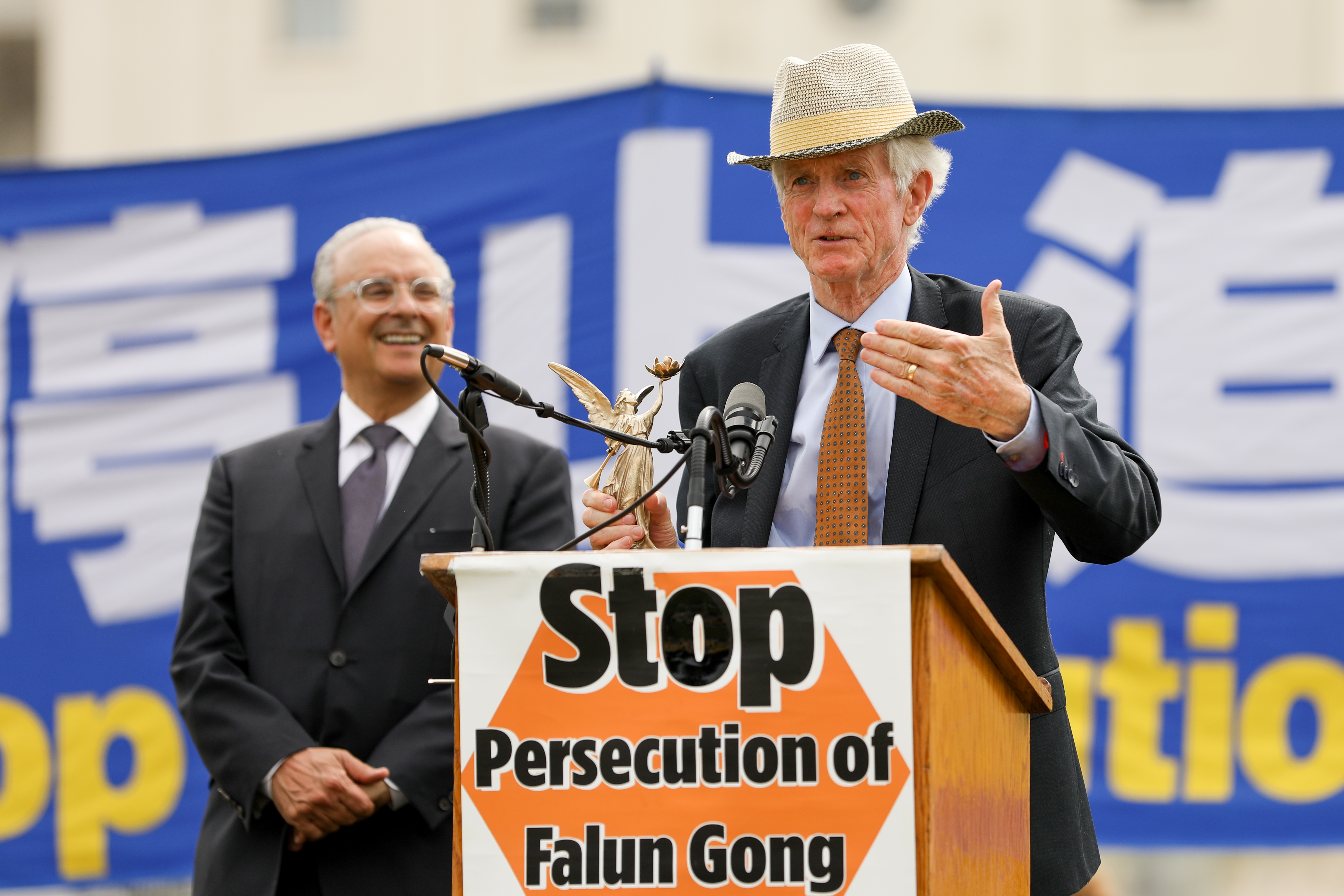
On June 20, the “two Davids” were reunited once more, this time in Washington, to be recognized for their work in exposing China’s severe persecution of Falun Gong adherents and the issue of organ pillaging from the persecuted group.
The Friends of Falun Gong Human Rights Award, presented by the award’s New York-based namesake, recognizes “the courage and persistence they’ve shown in exposing the crimes of the CCP [Chinese Communist Party], and for their meticulous and impactful work,” said Alan Adler, executive director of Friends of Falun Gong (FOFG).
“Organ harvesting is about as bad as you can get for humanity: Killing live people for their organs, that’s just the depths of depravity. And they’ve managed to bring it to light, which is remarkable,” said Adler.
Falun Gong, also known as Falun Dafa, is a spiritual meditation practice whose followers adhere to moral standards based on the principles of truthfulness, compassion, and tolerance.
In China, regime statistics showed 70 to 100 million people had taken up the meditation discipline by 1999, but the Chinese Communist Party (CCP), then led by Jiang Zemin, launched a brutal campaign on July 20, 1999 to eradicate the practice.
Practitioners in China have been subjected to systematic arrests, unlawful imprisonment, brainwashing, and torture. More shocking is the forced organ harvesting.
In March 2006, The Epoch Times broke the story that the CCP was pillaging organs from living Falun Dafa adherents for transplantation to paying customers, fueling a multi-billion-dollar industry. The “donors” are killed only after the organ is removed to keep it fresh.
But such an unprecedented evil proved to be hard to believe. Human rights activists approached Kilgour who, before becoming an MP and later secretary of state, served as a prosecutor for around a decade. Could Kilgour investigate these allegations?
On Kilgour’s recommendation, Matas, an established human rights lawyer, was asked to join the effort as well.
“I say to everybody, I have never met anybody in my life who works as hard as David [Matas] does,” says Kilgour, recalling with humor one time back in the late 1970s when he went to Matas’ home for dinner and Matas confessed the last time he cooked was seven or eight years before, as he is so busy working.
Despite knowing each other for many years, this was the first time the two worked on an issue together.
“What strikes me as remarkable is how much we agree on so many things, considering the fact that we each independently formed our own opinions on a wide variety of issues,” said Matas.
Investigation
The result of their joint investigation was a report, later published as a book, titled “Bloody Harvest,” which concluded that the allegations were true.
The report considered multiple types of evidence, including phone calls to transplant centers in China that promised organs from Falun Gong adherents to callers posing as patients.
This report was not the end, but the beginning of a tireless quest by Kilgour and Matas that has now lasted for over a decade.
“Nobody should stop for one minute, we are going to stop this terrible thing that’s happening in China,” said Kilgour.
Years ago, Kilgour and Matas estimated they had visited over 50 countries—some, such as the United States many times—to tell people about forced organ harvesting. They have participated in hundreds of events, including testimony before legislative bodies around the world, helping to inspire resolutions and laws aimed at curbing forced organ harvesting.
In 2016, Kilgour and Matas teamed up with American author and investigative journalist Ethan Gutmann to publish an update to their report, which gives, the report says, “a meticulous examination of the transplant programs of hundreds of hospitals in China.”
They discovered that the number of people being killed for their organs is much larger than originally assumed.
Kilgour said, “What has been happening to Falun Gong practitioners across China since mid-1999 is a genocide against innocent citizens.”
Pushing the First Dominos
Kilgour said he accepts the FOFG award with great pleasure, but insists he is accepting it on behalf of all of those who have helped in exposing the persecution over the years.
“We are really just among the ones to push the first dominos or deck of cards; and we wish the deck of cards had fallen years ago, but I am convinced that they’re going to stop doing it,” said Kilgour.
“I really want to pay tribute to the Falun Gong community who, of course, carried the major burden of trying to stop this, and have done excellent work across the world,” he said. He also has gratitude for the Uyghur, Tibetan, and House Christian communities who have also been victimized and have helped in the investigation.
Matas, who just days ago received an honorary degree from the University of Alberta for his human rights work, said the recognitions he and Kilgour are receiving help to effect change in the world.
“This award is to me a recognition of, I would say, not only what I’ve done, but also what the community has done to come to grips with this problem,” he said.
Kilgour notices that several jurisdictions, such as Taiwan and Norway, have already passed legislation to curb organ tourism, including preventing citizens from going to China for organ transplants or sanctioning those involved in organ harvesting in China.
“I want to thank too, the senators in the Senate of Canada for having a hearing on the bill that would try to reduce organ tourism,” he said, referring to the bill currently being studied in Canada’s Senate Human Rights Standing Committee, introduced on May 23 by Sen. Salma Ataullahjan.
“Of course, I want to thank DAFOH [Doctors Against Forced Organ Harvesting], all the medical people around the world, the supporters of DAFOH, they’ve probably been among the most effective against these practices,” added Kilgour.
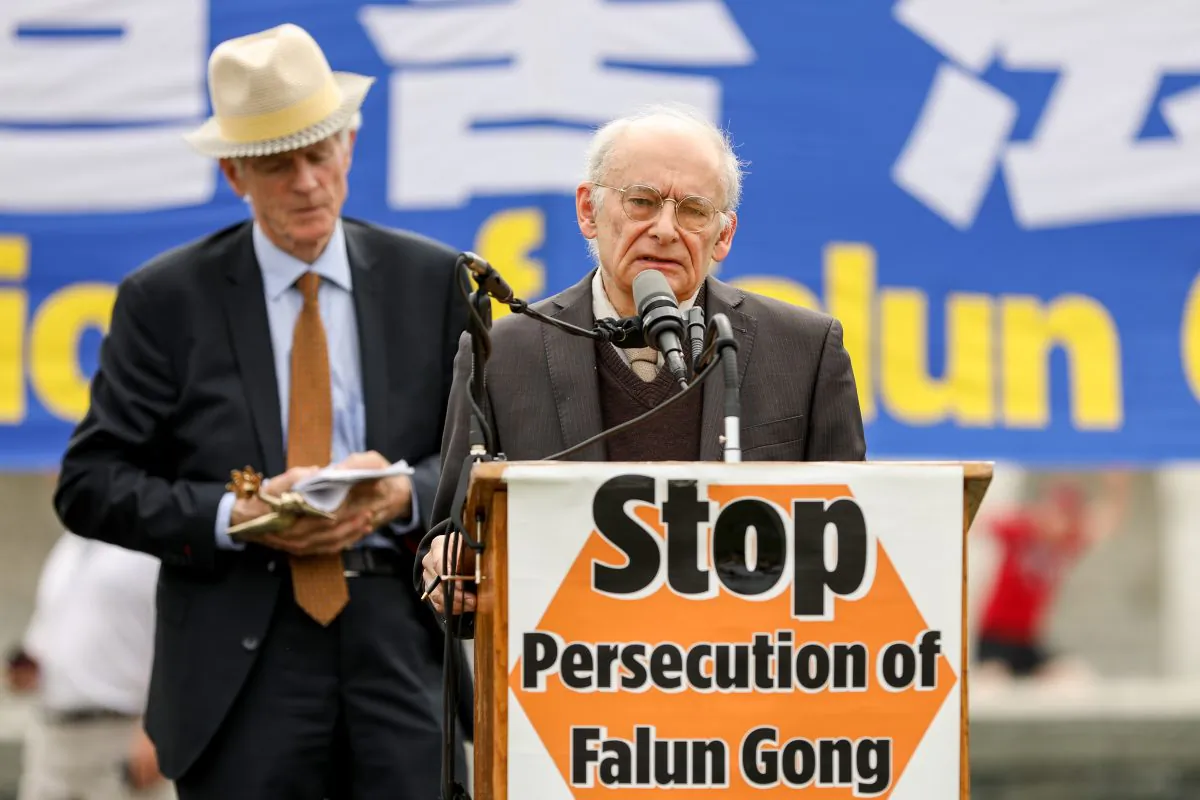
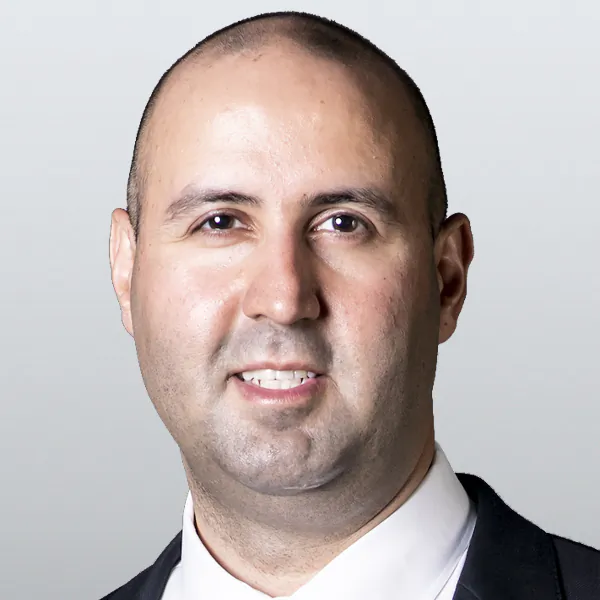
 Friends Read Free
Copy
Facebook
Tweet
Friends Read Free
Copy
Facebook
Tweet






